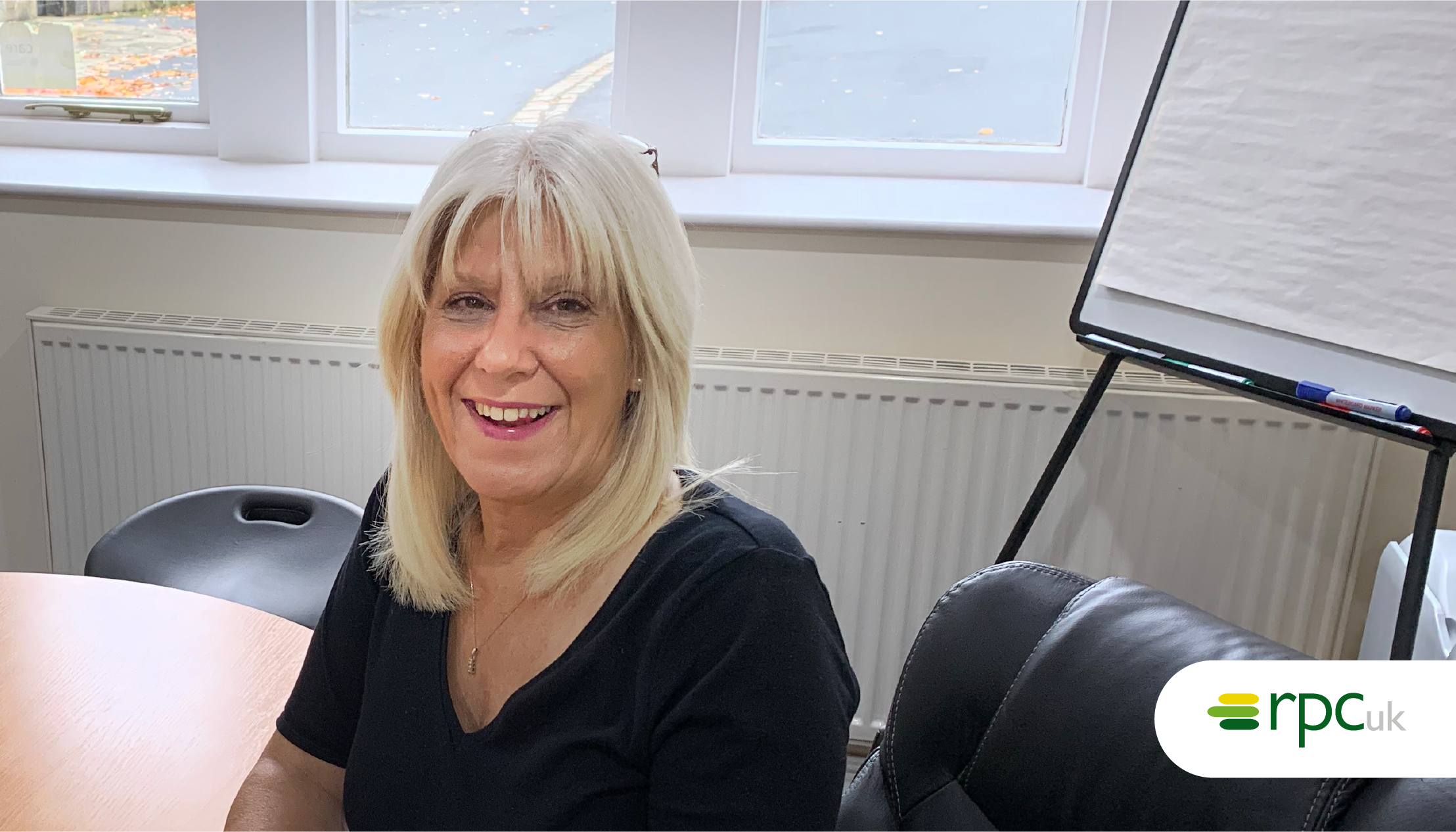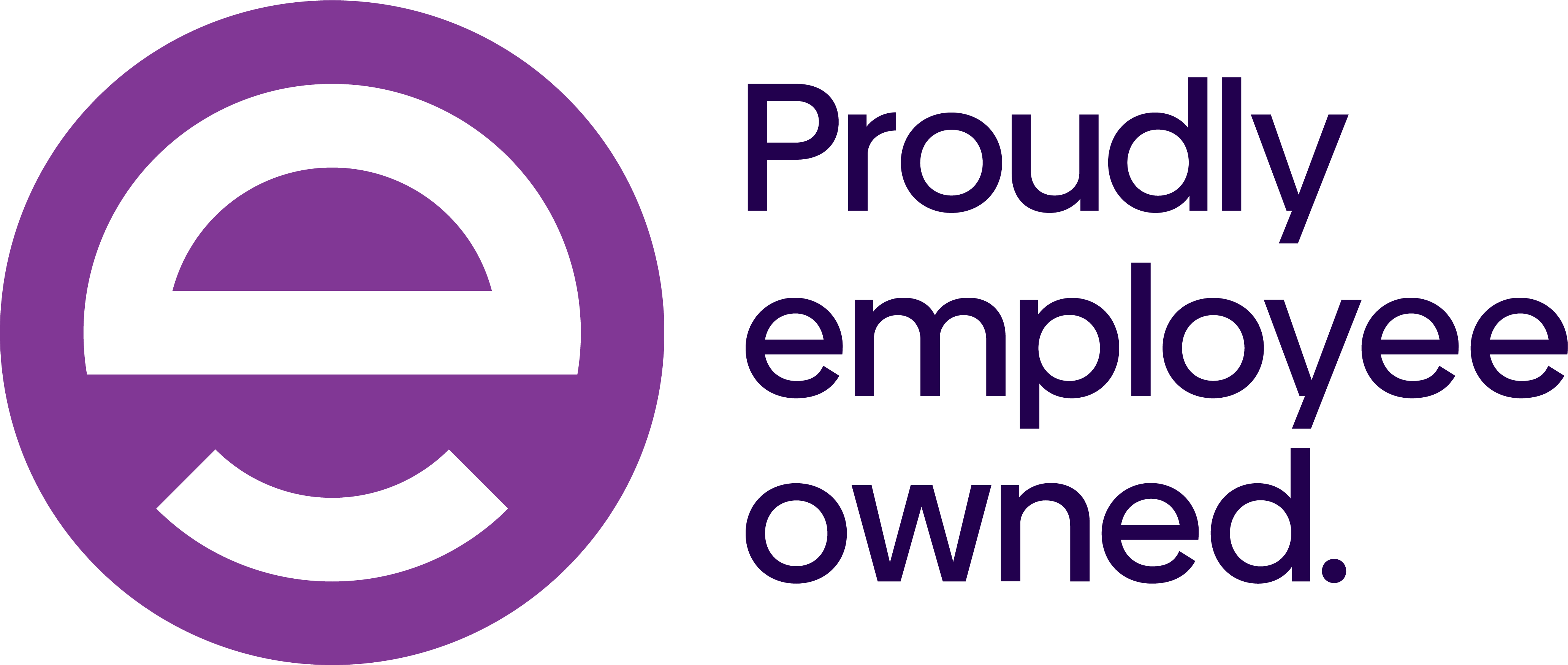All In A Day's Work: Tina Johnson, Operations Director

We sat down with our Operations Director, Tina Johnson to find out what her typical day is like. She gave us some insights into what goes into keeping the RPCuk wheels spinning.
How long have you worked at RPC?
I’ve been here since day dot. Since the very beginning. That must be 10-11 years now, when it was in Pete’s garage. I had a full-time job and then I’d go round and work for him at the weekend – organising him. And then, as it got busier and busier, he asked me to give up my other job and come here. There was just the three of us back then.
What did you do before RPC?
I worked at a school – Benton Park, at Rawdon. It was 1,500 kids, which gives you 3,000 crazy parents to deal with every day. It was fantastic, I loved it! You wouldn’t believe the things that went on. Before that, I’ve done all sorts. I’ve done banking, I’ve done telephone sales, worked in a building society. I’m still waiting to see what I want to be when I grow up!
Operations Director: What does a standard day at RPC entail for you?
Is there such a thing as a standard day? I don’t know, I’m not sure there is – whatever emails arrive, that’s what my day’s going to involve.
That could be trying to get us onboarded as a preferred supplier, checking purchase orders, liaising between our trainers and clients to organise workshops … I’m usually working two weeks ahead of myself, so I’m checking what’s coming up: does the trainer know where they’re going? Have they got everything they need? Is everything either couriered or picked up, or if people are coming here, have they got joining instructions? Is the place set up? Have we got enough shopping in? I’m always working to make sure everything in the calendar is covered.
And then over and above that, any emails that come in with bookings or queries, or people wanting to buy software or … I sort of sit in the middle and dole things out to the right person elsewhere in the office and make sure everyone else has got everything in place. Plus, finances. I deal with all the finance.
My phone calls, mostly, are people with training queries: course availability. I’ve got an awful lot of loyal customers that come back to us time and time again. I really like that part of it, that you build relationships with people over the years. I can recognise people by their voice. They just ring up and say, “Hi, Tina,” and you think, out of all the hundreds of people that we deal with, “Oh, that’s Brian.”
What’s the difference between a public scheduled course and a private event?
The public ones are publicised on the website. Anybody from anywhere can book a place on them. Members of the public, companies … if they can see them, they can book them. A private event is something like we’re doing tomorrow. This time, it’s Network Rail that’s asked for it and it will consist of only Network Rail delegates. We don’t let anyone else on it, it’s not advertised, a room is set aside just for them. And we do quite a few of those. Sometimes we do them here, sometimes we’ll go to the client. We’ve got one coming up for Cumbria University, so we will go and run it there for them. We’re doing one at Faithful and Gould this week, and another one at British Aerospace. They’re specially put on; they can have standard content – the same as a public course – or they can choose to have something that’s a bit more focused on what they do.
So, what can people expect when they phone in to ask about a course?
I think what they should expect, and I hope is what they get, is that whatever they’ve asked for — we will do our utmost to make sure they get it. I can’t do with hearing companies say, “We only do this, it’s just a three-day course, that’s all there is.”
I like being able to say, “Look, if you want to come for two days, you want to take some topics out, you want to do something different — I’ll sort it. Let me know.”
That’s what I think the benefit is of a company like this — the fact that you can make things happen. With large corporations, everything follows a process and you can’t get out of that process. I love the fact that we’ve got the flexibility to meet whatever need the customer has.
How many delegates do you have on average on a course?
It varies a lot, I would say for an average, it would be six. The maximum you would ever want is ten, because beyond that it dilutes the quality of the training. We run them 1 to 1 if that’s what somebody wants. If someone would just prefer to come and pick a trainer’s brains for a day, then that’s the way we’ll do it.
I always think, the answer should never be “no”. Whatever it is that the customer says they would like to do, I’ll find a way to make it work, because happy customers come back, don’t they?
How would you describe the office environment here?
I would say it’s absolutely fantastic. It’s a good team. Everybody gets on, and I think we choose people with care. When we choose people it’s not always necessarily because, maybe they’re the best at their job — you can always train someone to do a job — you can’t train someone to fit in with a team. So I think the team we’ve got is brilliant. There’s a lot of serious and hard work goes on, but – you can see the foozeball table – it’s a fun place to work. We have plenty of laughs. It’s a nice relaxed atmosphere, but if there’s work to be done, it gets done.
The RPC offices are in a fabulous rural location. What kind of feedback do you get from delegates who are more used to city-centre office blocks?
I think this location is a brilliant selling point for us. The number of people who come and, because it says in our address Hawksworth Estate, people are looking for an industrial estate. And then they turn up here, and, “Wow, this is not what we were expecting!” The fact that they can come into the breakout room at lunchtime and look out on that beautiful countryside — people take photographs, people ring their spouses and say, “You should see where I am!” They love it.
I used to think maybe they wouldn’t like being so far out because you can’t wander off to the shops or anything, but I don’t think people need to. When they come here, they want some fresh air, and we order in everything that they need.
Are you excited about the launch of the new RPC P6 workshops?
I really want them to work because so much effort and hard work has gone into them. The standard Oracle Primavera courses have been around since the wheel was invented, so trying to get people to change their mindset and try something new is a challenge. We’ve been doing lots of promotion and I’ve been sending out emails when customers have said, “Tina, when’s the next P102 course?” And I’ve said, “Here are the dates, but have you seen the new workshops? How about trying PSF instead?”
We’ve had brilliant feedback from workshop delegates so far, so hopefully they’ll all have gone back to work to spread the word that it’s just as good, or even better than the 102. We think so.
Is there a certain type of person you’ve noticed who is more receptive to the new workshops?
I would say, probably the younger generation. They’ve heard of the standard P102 and P106 courses because that information just gets passed down in a company, but they’re more likely to be interested in something new. And I think, as well, that the Oracle Learning Subscription is a draw for them – they’re more than happy to go on after the workshop and continue to learn online and access online resources.
What are you most passionate about in your job?
Actually, when we have people here, I love just making sure that they go away happy. I love picking them up from the station, and chatting to them in the car, and finding out stuff about them. I just love the interaction of a big group of people here. I love a load of people around.
Back to Industry Insights











